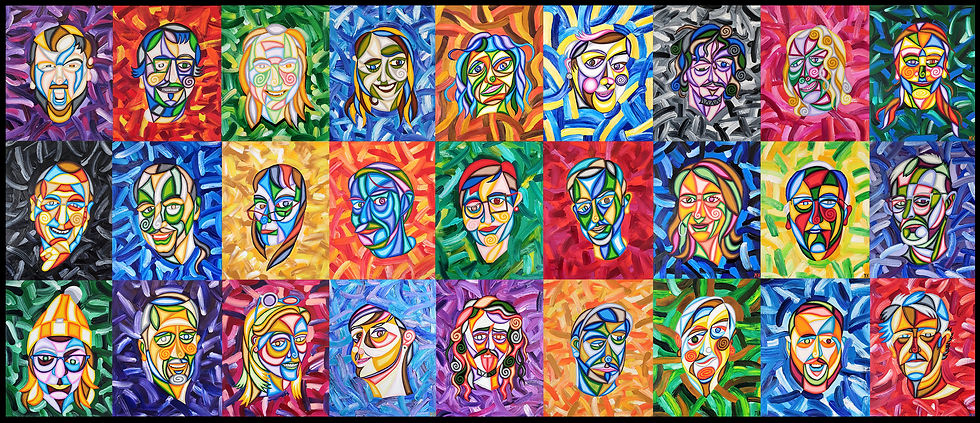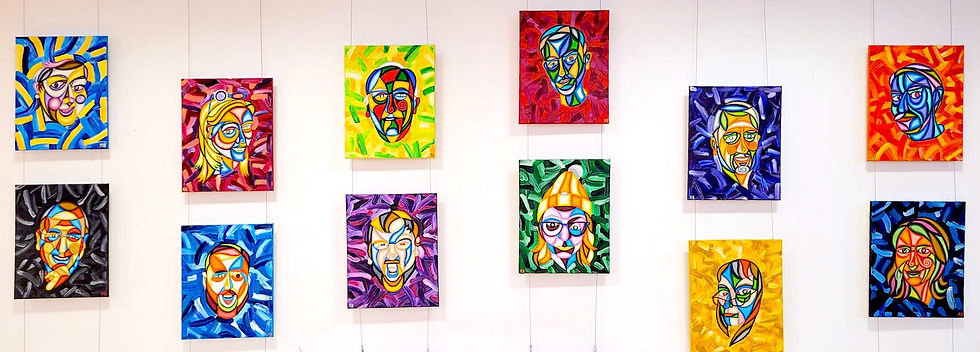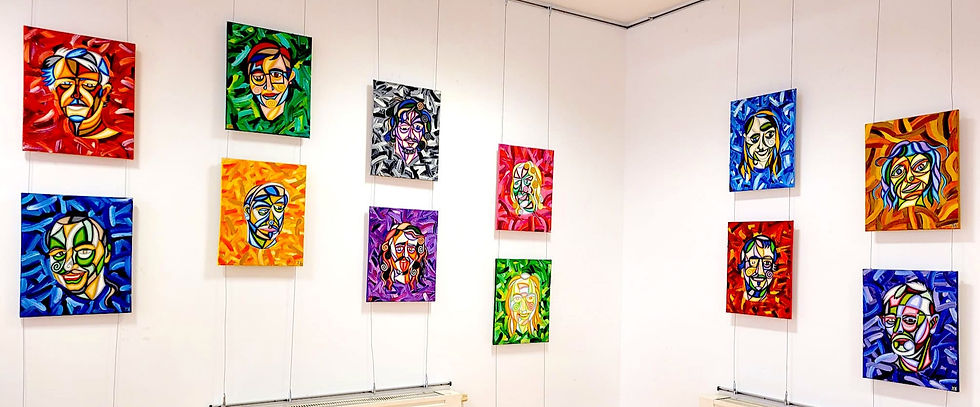Brexiles Exhibition - The Circle Gallery, Sheffield
- Madeleina Kay

- Sep 27, 2023
- 3 min read

'Portrait exhibition by Sheffield artist tells the story of Brits who left the UK because of Brexit'
Article by Madeleina Kay originally published in Yorkshire Bylines
The phenomenon of British citizens fleeing post-Brexit Britain has been described variously as ‘the Brexodus’ or the ‘Brexit brain drain’, as we see open-minded, talented, ambitious Brits leaving a country they no longer recognise as a home which aligns with their world view and liberal values. My ‘Brexiles’ exhibition, which has just opened in Sheffield, at The Circle Gallery, Rockingham Lane, aims to tell their stories.

This is my first solo exhibition since 2015 and will be on display until Wednesday 4 October. The exhibition features portraits of 27 ‘Brexiles’ – British citizens, living across the EU member countries, who left the UK because of Brexit. I found these 27 individuals through social media, during the pandemic, and interviewed them as part of a research project funded by the Schwarzkopf Foundation, who awarded me the title of ‘Young European of the Year’ in 2018.
My fascination with ‘Brexiles’ emerged from my own, unfulfilled desire to leave the UK in the wake of Brexit. It was also a retaliation against the Brexiters who trolled my social media posts with a refrain of ‘If you love Europe so much – why don’t you move there?’. The stupidity of that statement intrigued me enough to find out more about the group of people who had done exactly that – chosen Europe, in the face of rising nationalism and xenophobia.
It was far easier to find ‘Brexiles’ in some countries compared to others; Spain and France were especially popular destinations for British expats, probably due to their proximity to the UK and popularity of French and Spanish language tuition in UK schools. In contrast, it proved very challenging to find British expats (who were willing to participate in the project) in Hungary and Lithuania, this is because few people move to Hungary to flee nationalism where their government can be described as exactly that, and Lithuania being a very small country (in terms of geographical size and population).

Reclaiming British identity
The colour schemes of the portraits were chosen by the participants for their personal, symbolic meaning and many requested the colours of the national flag of their new home nation. I tried to ensure gender, LGBTQ+ and ethnic diversity in my research participants; I succeeded in the first two but only managed to find one, non-white Brit who had emigrated who was also willing to participate in my project. What I found especially interesting was how two of my LGBTQ+ participants requested that their portrait feature the colours of the Pride/Non-Binary flag, as this identity was so important to them to be represented.
During their interviews I asked them to discuss the experience of migration, what they missed about the UK, what they loved about their new life and the impact of Brexit on their sense of identity. Many of my Brexiles were keen to emphasise how they are patriotic, in the sense that they love certain aspects of British culture and life, generally places, landscapes, food, cultural events and people. Whereas it was the intensifying nationalist sentiment, rising xenophobia and social inequality, consumerist society and toxic political culture which had left them conflicted about their pride in this identity.
The exhibition’s information booklet includes key quotes from the participants’ interviews:

“When I go back, as I get on the train at Gatwick, I feel a heaviness of a society too long under pressure to just have the normal things humans should have, like secure housing, work/life balance and enough money to enjoy themselves. The idea of being stuck behind an invisible wall with Boris Johnson in a country run by the Eton 5th form boys common room fills me with horror.” Jinpa Smith, Portugal

“While I knew racism and xenophobia was a thing, as a white Brit it had always been pretty abstract, but I was suddenly self-conscious speaking foreign languages in public and worried for my wife and children.” Paul Davidson, Estonia

“My friends often ask when I’ll be coming back, but without trying to come across as arrogant, why should I choose to waste my time in a toxic and populist environment, when I could excel in my career and flourish in one of the most international cities on the continent? Olivier Trouille, Belgium
Brexiles are a group of people frequently ignored in the debate about Brexit and my ambition for this project and resulting exhibition was to highlight the impact of Brexit on British society. My hope is that the exhibition will be exhibited in other cities across the UK and I would like to invite any local, grassroots pro-EU groups interested in hosting the exhibition and open night event to please get in touch with me: madeleinakay@outlook.com










Comments